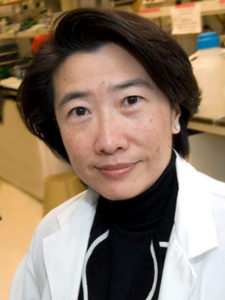
The term juvenile idiopathic arthritis (JIA) may disappear in the next few years. The multiple forms of arthritis that affect children aren’t going away, but new, data-driven research methods are taking idiopathic out of the picture.
“Most rheumatology diagnoses are diagnoses of exclusion,” said Rae S.M. Yeung, PhD, FRCP, Hak-Ming and Deborah Chiu Chair in Paediatric Translational Research and Professor of Paediatrics, Immunology & Medical Science at the University of Toronto. “You can’t explain it, so you call it idiopathic. The incredible technology that has developed in the genomic era, together with artificial intelligence and machine learning, means we are able to recognize patterns that help us delineate and distinguish one patient from another. We will be able to stop calling it idiopathic because we will be able to explain the disease biologically and specifically target the biologic culprits.”
Dr. Yeung will provide a glimpse into the near future of JIA during Biologic Classification of JIA on Sunday from 8:30 – 10:00 am in Room W375a.
The ACR symposium also features Peter Nigrovic, MD, Associate Professor of Medicine at Harvard Medical School, and Director of Translational Research for the Childhood Arthritis and Rheumatology Research Alliance. Dr. Nigrovic will discuss the latest findings on the genetic classification of chronic arthritis in both children and adults.

Timothy Beukelman, MD, MSCE, Associate Professor of Pediatrics at the University of Alabama at Birmingham, will explore the newest draft ACR recommendations for treating JIA. This is the first major update to the treatment recommendations since the original guidelines were released in 2011, Dr. Beukelman said. A 2013 update covered only systemic arthritis.
“For the treatment of polyarthritis, there have been newly approved treatments and additional studies about the effects of initial treatment choices,” Dr. Beukelman said. “There has been increasing experience with and awareness of the treatment of sacroiliitis. And the treatment of enthesitis is a new addition to the ACR JIA recommendations.”
While the complete update can be a dense document, three key changes are likely to attract the most attention:
- A conditional recommendation to escalate therapy for patients with polyarthritis and low disease activity.
- A strong recommendation to initiate treatment of polyarthritis with DMARD (such as methotrexate) over NSAID monotherapy.
- A strong recommendation for the use of TNF inhibitors to treat active sacroiliitis.
“I think the recommendation to escalate therapy for low disease activity may draw the most attention,” Dr. Beukelman said. “There may be a tendency to tolerate low disease activity, but this is likely not in the best interest of the majority of our patients.”
Ongoing research into JIA’s biologic mechanisms along with precision medicine initiatives mean a brighter future for affected children. Dr. Yeung is the founding chair of UCAN, the Understanding Childhood Arthritis Network, an international consortium collectively representing more than 300 sites in more than 50 countries. UCAN has already published preliminary data. Attendees can expect previews of the most recent results.
“These findings are putting more information at the fingertips of the physician,” Dr. Yeung said. “We are finding patterns that will help us personalize the approach to these patients. We will be better able to give them the right drug at the right time and stop the drug at the right time. These new diagnoses may or may not match the current juvenile diagnoses or the current adult diagnoses, but our diagnoses will be driven by data.”
UCAN is actively translating novel findings into clinical tools at an increasing pace. And for the first time in global juvenile arthritis research, health economists and government decision makers are actively involved in evaluating policy changes to encourage early adoption of new clinical developments.
“The lessons that we have learned and the framework we have built are transferrable to all inflammatory diseases, not just arthritis and rheumatic diseases and not just in children,” Dr. Yeung said. “Kids haven’t had 50 to 60 years of life to confound what we are studying. What we are studying in kids is a purer biology that gives us a much more focused way of looking at pathways without all the noise we see in adults. This approach has application to all comers, not just adult arthritis but to inflammatory diseases in general.”
